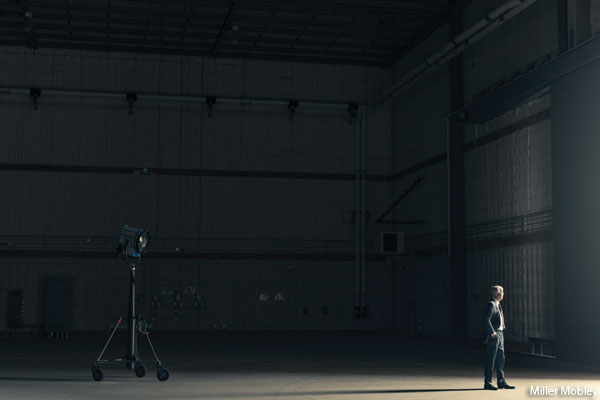Can a Philly Movie Studio Really Compete with Hollywood?
He never admitted to anyone that it was a crazy idea, even though at first glance it was obviously crazy. He did keep a self-deprecating joke at the ready: He liked to say that the vision had come to him after he drank a bad vodka tonic. But once the joke was out of the way, he laid down the elements of the plan like bricks in the wall of some inevitable future.
He was going to build something. Something amazing. He happened to own a large piece of property and some buildings in Chester Township, which borders the city of Chester on the northwest. For the past few years, he’d been renting out the buildings to youth sports teams. Kids played lacrosse, basketball, field hockey there. But now he imagined a new kind of venture rising on the site: sound stages with 40-foot ceilings, stagehands scurrying every which way, thick electrical wires running current to hot, powerful lights. A film and TV production studio. Huge, lush, state-of-the-art. He was going to convince Hollywood producers—big ones—to shoot movies there.
This was what the man said. Top producers and directors would come, he explained, and also famous actors and actresses, riding their limos into Chester Township, adjacent to one of the poorest cities in the country. They would arrive and stay for the many months that it takes to film a major movie, and they would hire all the hundreds of people it takes to get the job done—the carpenters and cameramen and grips, everyone staying in local hotels and eating at local restaurants and pumping millions into a part of Pennsylvania that needs such a jolt in the worst way. He spoke of the studio as “the linchpin of a domestic industry”: It would be more than just a profitable business for him. It would be the catalyst for a complete economic transformation.
Jeffrey Rotwitt, a lawyer and real estate developer, started making this pitch around 2007 to friends, colleagues, lawmakers, lenders. Some people humored him, told him good luck, but this didn’t deter him. The global economic collapse of 2008 didn’t deter him. The fact that he was involved in a real estate deal with the First Judicial District that drew scrutiny in 2009 and 2010 and became the subject of a months-long and unflattering Inquirer investigation didn’t deter him. Because Rotwitt found people willing to invest in his dream. He secured $30 million from union pension funds (much of it from the carpenters union), $9 million from US Bank, and $10 million from the taxpayers of Pennsylvania, in the form of a state capital-assistance grant. He worked with township and county lawmakers to rezone his property to make it viable for large film shoots, then convinced them to kick in millions in tax-increment financing. This should tell you a lot about the type of person Jeffrey Rotwitt is: a man who can walk on water when others are drowning.
His facility is called Sun Center Studios. It’s real. The doors have been open since August 2011. Sun Center is a legitimately impressive place, with multiple sound stages that contain every amenity a Hollywood director could desire. One big movie has already shot there, as well as one smaller film. But only those two, along with the occasional commercial. Will Smith and Harrison Ford have graced the premises. Yet when I visited Sun Center in May, the facility stood largely empty. No movie was filming there. No movies were scheduled to film there. The man behind Sun Center was waiting for the next movie to come. Or not come.



